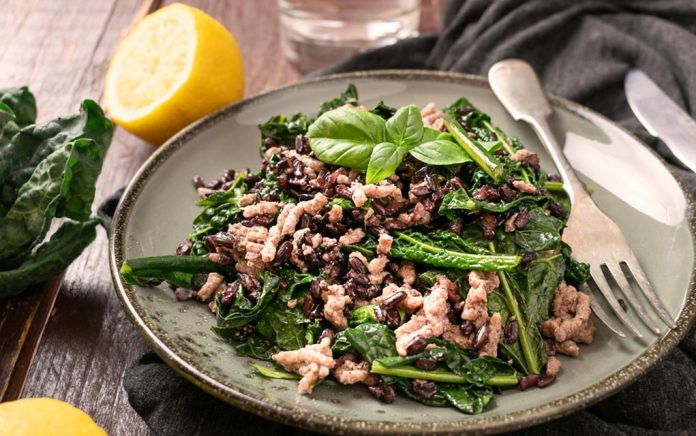
(AscendHealthy.com) – Many of us struggle to find the right diet for our individual bodies, and that can have major impacts on our health and wellbeing. We get all sorts of broad, blanket advice on what we should and shouldn’t eat when a set of more individualized plans could be what we’ve been missing. Could blood type be that final missing key to finding the right diet? Let’s investigate.
What Is the Blood Type Diet?
In the 1990s, Dr. Peter D’Adamo, a naturopath, developed a theory that the antigens determining our blood types could affect how we process our meals. In 1996, he published the self-help book Eat Right For Your Type, launching the blood type diet into the mainstream.
According to Dr. D’Adamo, our antigens can react to certain proteins called lectins, which are present in many foods. Because each blood type has a different makeup of antigens (except for AB, which lacks both), they all respond differently to each type of lectin. People who eat foods that contain high amounts of the wrong ones open the doors to all sorts of chronic illnesses.
Dr. D’Adamo recommends people start with these basics:
- O blood types should have diets heavy in animal proteins, avoiding grains and dairy products.
- A blood types do best on vegetarian diets.
- B blood types can enjoy the least restrictive diets.
- AB blood types are less restrictive than type-O diets, falling somewhere between type-A and type-B diets.
A Look at the Science
There’s very little research in this area, but the science that does exist is a bit discouraging. For example, a 2004 study found varying benefits to each set of food guidelines — but no evidence to show any added benefits when people followed the recommended diets for their blood types.
Torolf Moen, a researcher at the Norwegian University of Science and Technology, explains that there are numerous holes in Dr. D’Adamo’s theory. The first is the naturopath’s belief that type-O blood is the oldest of the four, with AB having evolved from it about 1000 years ago. Research has shown it’s more likely that A, B and O types each developed independently in different regions, with the mixing of European, Asian and South American ethnicities, leading to today’s broad variations between individuals.
The other biggie is the focus on lectins. Dr. D’Adamo may have developed his theory based on the idea that certain lectins work well for blood type testing. Yes, that’s right, our blood type antigens will bind to a handful of specific lectins. However, according to the Center for Nutrition Studies, all blood types have equally negative responses to most lectins. Even more, the bulk of these proteins, most of which are destroyed when cooked, exist in raw legumes. Simply put, no matter what we eat, the differences in our blood antigens don’t make that big of a difference.
Individualizing Your Approach
Finding the right diet may not be as easy as knowing your blood type, but we each might still benefit from a more individualized approach. For example, people at risk for diabetes might want to alter their balance of protein versus carbohydrate intake; the American Heart Association recommends a Mediterranean diet for people at risk for heart disease. It’s up to each of us to listen to our bodies, consider our personalized needs and base our diets around what’s right for us.
Dr. D’Adamo’s advice sounds great — in theory. Unfortunately, the research doesn’t back any of his claims. Instead of seeking out a cookie-cutter solution, find the right diet for your body, focusing on healthy foods and addressing individual risks. And remember: Diet is a lifestyle, not a temporary fix. Fuel your body and treat it right; the rest will fall into place.
~Here’s to Your Healthy Ascension
Copyright 2023, AscendHealthy.com




















